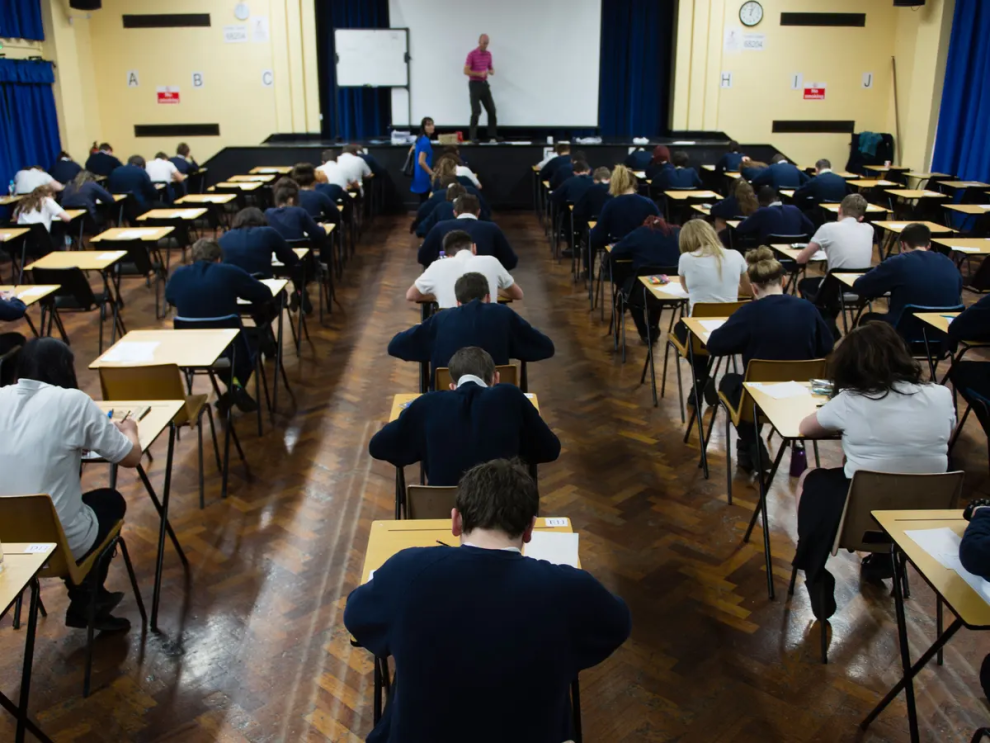Highly controversial changes to Wales’ new General Certificate of Secondary Education (GCSE) qualifications have been announced, and they are set to proceed despite significant debate. These changes, which will be implemented from September 2025 with exams taking place in 2027, are aimed at aligning the GCSEs with Wales’ new curriculum. While some stakeholders applaud the adjustments, others have voiced concerns about the potential consequences.
SCIENCE
One of the most significant alterations is the elimination of separate GCSEs in physics, chemistry, and biology. Under the new system, students will have the option to pursue a double GCSE or a single science award that combines all three subjects.
This change has drawn criticism from science organisations Laura Daly, an education specialist at the Royal Society of Chemistry, said: “While some of Qualification Wales’ changes are welcome, this is a real missed opportunity to bring in the exciting, inclusive changes we worked on together earlier in the process.
“Every learner should have the same access to one high-quality GCSE science qualification – this is what QW previously indicated they’d do. But now they’ve added another option that has no clear audience and no route to further study.
“This means some schools might opt to only offer the limited option – learners at those schools have a future in science taken away from them before they’ve had the chance to make the decision themselves.
“We are pleased that QW heard our calls to take some of the best features from the outgoing ‘triple science’ course and incorporate them into the new qualification. This includes separate subject sub-reporting as part of the learner’s final grade, so that learners can clearly understand their areas of strength and make informed decisions about post-16 study.
“Ultimately, this is about equality. QW’s decision means the least advantaged children in Wales will continue to suffer most. With the current STEM skills crisis, the last thing Wales needs is to shrink the future talent pool by continuing to exclude people with an unfair two-tier science education.
“We urge QW to invest in the future of every learner in Wales by returning to their original proposal – which was far-sighted, evidence-based and created in consultation with the education community.”
ENGLISH
Additionally, the English language and literature GCSEs will be merged into a single qualification, as will the Welsh language and literature GCSEs. This consolidation has also been met with criticism, as some stakeholders fear it could undermine the breadth and depth of study in these subjects.
MATHS
Moreover, the current two separate math GCSEs in numeracy and mathematics will be replaced by a single double award, effectively eliminating the option of a standalone math GCSE. This change aims to streamline the curriculum and provide a more cohesive approach to mathematics education.
ASSESSMENTS
In terms of assessment, the new GCSEs will incorporate more coursework and digital assessments, with an increased focus on on-screen evaluations. However, it should be noted that digital and on-screen assessments will only be implemented in subjects where they enhance the validity of the assessment. For example, computer science, digital technology, digital media and film, music, and drama will be among the subjects benefiting from digital assessment methods.
THE CHANGES
The changes to the GCSEs have garnered mixed reactions from educators, students, and other stakeholders. Qualifications Wales, the regulatory body responsible for overseeing qualifications in Wales, claims that the modifications will provide more choice to schools and make the assessments more relevant and engaging. They argue that the changes were developed through extensive collaboration with teachers, employers, awarding bodies, and learners, ensuring that the new qualifications meet the needs of all stakeholders.
However, critics express concerns that the alterations may increase the workload for teachers and create uncertainty during the transition phase. It is crucial for the implementation process to be well-supported, particularly to address any potential challenges and ensure that teachers have the necessary resources and training to deliver the new qualifications effectively.
The new GCSEs will be introduced gradually, with the first set of qualifications being taught from September 2025. Subjects such as art and design, drama, music, geography, history, and computer science will be included in the initial wave. Additional subjects, such as dance, digital media and film, engineering, and British Sign Language, will follow in subsequent years.
Education Minister Jeremy Miles expressed support for the changes, stating that they provide certainty to educators, students, and parents. The Welsh government is committed to assisting schools throughout the transition process, recognizing the significance of this development in the context of Wales’ evolving curriculum.
As these modifications mark a significant departure from the previous GCSE system, it remains to be seen how they will impact students and the education system as a whole. The changes have generated considerable debate, reflecting the complexities inherent in reshaping educational qualifications to meet evolving educational goals and expectations. Continued evaluation and support will be crucial to ensure a smooth transition and ultimately achieve the desired outcomes for Welsh students.



















